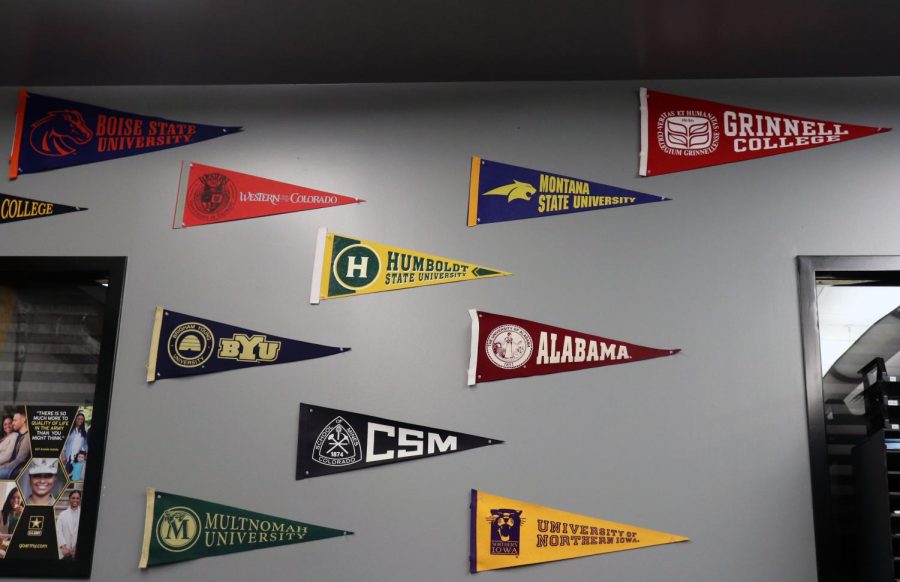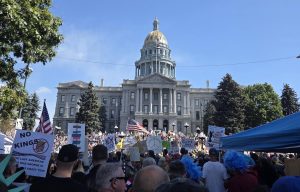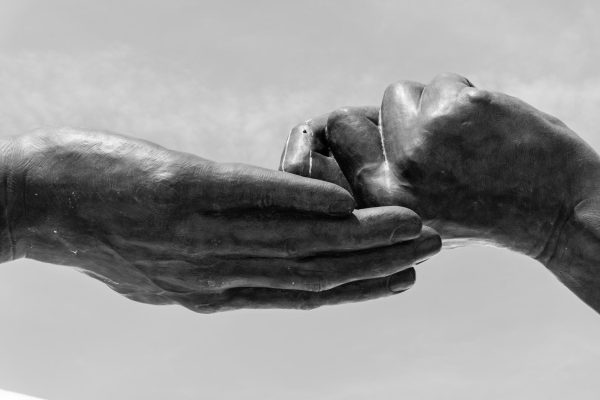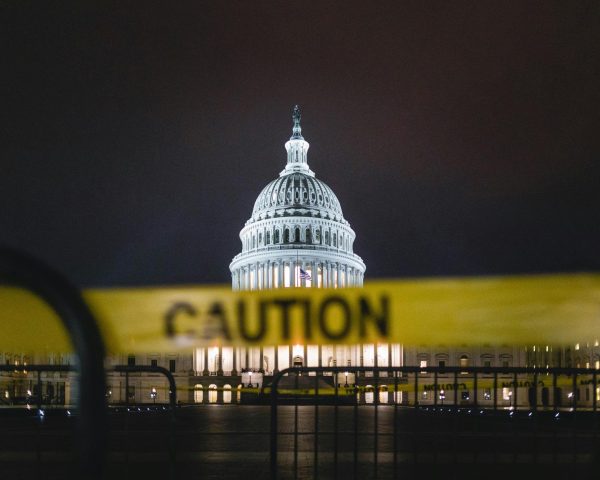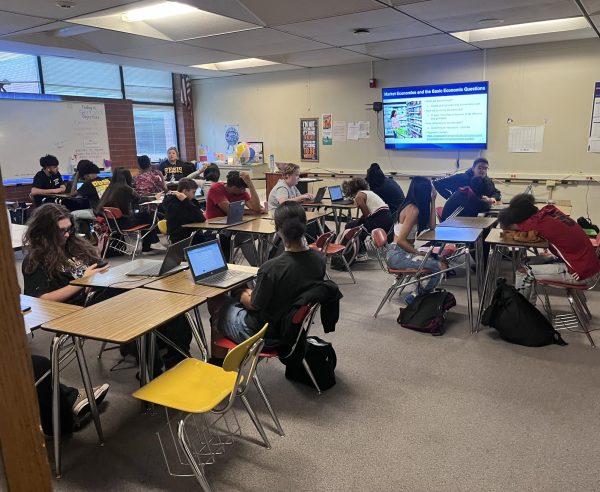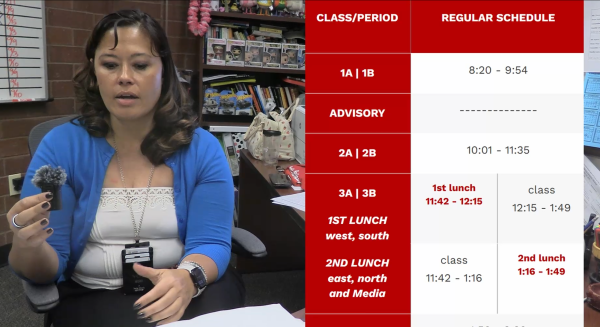Opinion: Will I feel safe on a college campus?
Feature Photo by: Eric Huynh – Many college pennants hang on the College and Career Center here at Rangeview. With colleges lingering within many seniors’ horizons, the idea of being racially profiled may weigh on their mind.
February 13, 2020
Just as many other seniors in Rangeview and across the world would say, senior year is not a breeze. Not only do we have homework, extracurricular activities, and/or work, but the emphasis of college and scholarship applications add another level of stress and pressure. In terms of my classes, it’s relatively challenging as I am in an AP class and taking college classes as well.
I took a CCA dual-enrollment class called American Government during my first semester of senior year. As a college-level course, the class required a research paper.
The prompt was to “research any political issue, concept or person (historical or active) to demonstrate content understanding regarding the history, the modern day applications and prediction of political issue.” I couldn’t think of any political issue or person that I was really intrigued about so I decided to turn to the Internet.
Scrolling through the news on Google, I remember seeing the CU Boulder racial incident when it first happened.
On October 6th, a video caught an African American male student having a confrontation with a 33-year-old white female named Rebekah Krajacic at the Engineering Center on campus. The woman accused the student for stalking her and eventually began yelling racial slurs like the n-word.
“It is disappointing to see that despite efforts to be more accepting and inclusive of all races and ethnicity, there are still those with a closed mindset,” said senior Helen Do.
Suddenly, the idea of getting racially profiled on campus made me fear for college. How can I focus on my higher education and express myself as a person when the possibility of a racist person coming out of nowhere dwells my mind? Yet, the curiosity of the racial incident hooked me into researching about the topic even further.
I looked into more racial incidents to see what it was like in other universities. At the University of Connecticut, two out of three students were caught on video walking through a parking lot and yelling out the n-word louder and louder.
At Washington University in St. Louis, a Korean American student got a screenshot of a group chat from her friend with messages containing racial connotations on Asian Americans. They acted like Asian Americans are foreigners to the United States by saying, “why are Asians invading our study room” and “it’s so annoying, they’re having a movie night in our study room.”
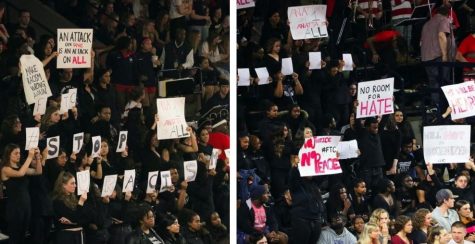
It’s crazy to think that these are common occurrences within our society.
“I would feel terrible [if someone racially profiled me]. Someone is taking what I look like or what I believe in and making a judgement based off of that,” said senior Salma Ait Chafhi. “It’s not a good feeling. I would feel discouraged in all honesty to even continue my education at that university especially if the person wasn’t getting some sort of punishment.”
I found out that the college’s main solution toward racist speech was speech codes. According to the Foundation for Individual Rights in Education (FIRE), they define “‘speech code’ as any university regulation or policy that prohibits expression that would be protected by the First Amendment in society at large.”
Colleges see these policies as a way to prohibit any type of expression that undermined minorities; however, there are problems that come with speech codes.
For example, universities tend to be vague on what punishable speech is by generalizing different types of speech like opinions to be threats towards a certain group. It essentially forces students to guess the meaning or in context which ultimately refrains themselves from speaking. This even suppresses an open environment for debate about disfavored topics since the vague terms will take most speech as hate speech.
After all, they fundamentally violate the constitutional right to free speech: “Congress shall make no law abridging the freedom of speech.” Although speech codes have good intentions, they won’t get rid of prejudicial ideals people have towards a certain group.
Recently, FIRE has surveyed and rated 466 colleges and universities on their written policies and how much they restrict protected speech. On their rating scale of “red light,” “yellow light,” and “green light,” 133 (28.5%) received a red light rating and 285 (61.2%) received a yellow rating while there are only 42 (9%) colleges that have received a green light rating.
Universities with a yellow light rating “maintains policies that could be interpreted to suppress protected speech or policies that, while clearly restricting freedom of speech, restrict relatively narrow categories of speech.” Although yellow ratings aren’t necessarily bad, there’s always improvements to creating a place open for free expression.
Now, the question is: how can colleges get a green light rating? The answer is through counterspeech and education.
Barack Obama declared that “the strongest weapon against hateful speech is not repression; it is more speech — the voices of tolerance that rally against bigotry.” It’s the only effective way for counteracting stereotypes and ultimately change how people think of a certain group.
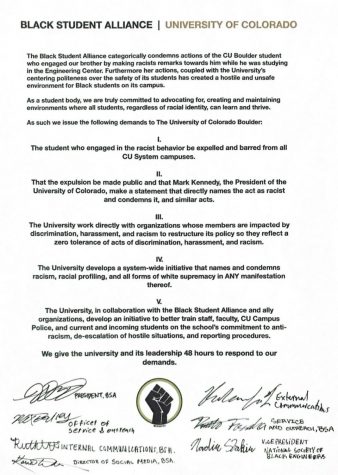
Take CU Boulder’s Black Student Alliance and their push for policy change. After the racial incident happened, the organization took the initiative by issuing a list of demands that urges the administration to work with minorities to address and prevent racism alongside more training for all members of the university on racial discrimination.
Senior Hillary Boakye expresses that “the most effective way is to condemn the perpetrators and stop creating environments where people feel comfortable enough to say/do racist things in the first place.”
Chafhi emphasizes that colleges should allow minorities to advocate for themselves. “An act of intolerance towards other races and religions should not be tolerated,” she claimed.
As an Asian American who plans on going to college, I want to be ensured that the college I go to not only allows free expression on debatable topics, but also makes me feel safe as I pursue toward my major.
